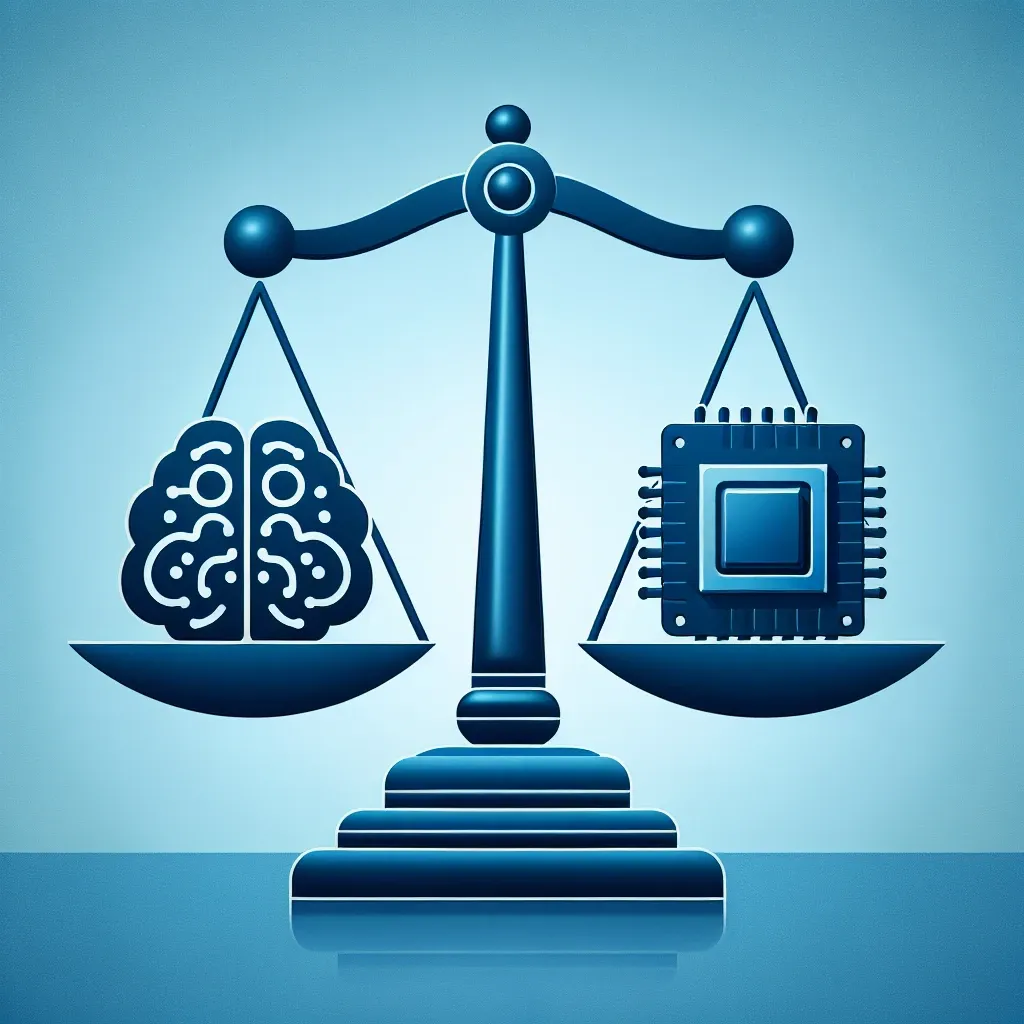Introduction
In today’s fast-paced digital landscape, the intersection of technology and creativity is more relevant than ever. A recent blind study has provided compelling evidence that AI-generated content can be nearly indistinguishable from work produced by human writers. This discovery raises important questions about the future of content creation, the role of artificial intelligence (AI) in creative industries, and the ethical implications that come with it. In this article, we will delve into the findings of this study, explore the implications of AI-generated content, and consider what this means for writers and content creators moving forward.
The Blind Study: An Overview
The blind study conducted by a team of researchers involved a diverse set of participants from various backgrounds. The objective was straightforward: to assess whether the content generated by AI could be differentiated from content created by human writers. Participants were presented with a series of articles, some written by AI algorithms and others by human authors, without knowing the source of each piece.
Methodology
The study utilized a randomized selection of topics ranging from technology to health and lifestyle. Participants were asked to rate each article on a scale of 1 to 5 based on criteria such as clarity, engagement, and overall quality. The results were then analyzed to see how often participants could accurately identify whether the content was AI-generated or human-written.
Key Findings
The results of the study were startling. A significant portion of participants (over 60%) could not differentiate between AI-generated and human-written content. This suggests that AI has made considerable advancements in producing coherent and contextually relevant writing. Furthermore, many participants rated AI-generated articles very similarly to human-created ones, indicating a high level of acceptance for machine-generated text in modern discourse.
Implications for the Future of Writing
The implications of these findings are far-reaching. As AI continues to evolve, the landscape of content creation could shift dramatically. Here are some key areas to consider:
1. Changing Roles for Writers
With AI’s ability to generate high-quality content, the role of human writers may evolve. Rather than focusing solely on content generation, writers may transition to more strategic roles, such as content curation, editing, and adding a human touch to AI-generated drafts.
2. Increased Efficiency
Organizations may leverage AI to streamline their content production processes. By using AI tools, businesses can save time and resources while maintaining a steady flow of quality content, allowing human writers to engage in more complex tasks that require creativity and critical thinking.
3. New Opportunities for Collaboration
The synergy between AI and human creativity could lead to innovative forms of content. Writers can collaborate with AI tools to optimize their writing processes, resulting in unique narratives that blend human emotion with machine efficiency.
Pros and Cons of AI-Generated Content
While the potential benefits of AI-generated content are significant, it is essential to weigh these against the drawbacks:
Pros
- Scalability: AI can produce content at an unprecedented scale, making it easier for businesses to meet their content demands.
- Cost-Effectiveness: By automating the writing process, companies can reduce labor costs associated with content creation.
- Consistency: AI can maintain a consistent tone and style across various pieces, ensuring brand alignment.
Cons
- Lack of Authenticity: AI-generated content may lack the genuine voice and personal experiences that human writers bring.
- Ethical Concerns: The use of AI raises questions about ownership, plagiarism, and the ethical implications of using machine-generated content.
- Potential for Misinformation: If not carefully monitored, AI can inadvertently produce inaccurate or misleading information.
Cultural Relevance of AI in Writing
The cultural significance of AI-generated content cannot be overstated. As society becomes increasingly reliant on technology, understanding how AI influences communication and creativity is crucial. The integration of AI in writing reflects broader societal trends, including the growing acceptance of technology in everyday life.
AI and Creative Expression
There is a delicate balance between embracing AI in creative expression and preserving the value of human creativity. Many artists and writers fear that reliance on AI could dilute the emotional depth and authenticity of their work. However, when used thoughtfully, AI can enhance creativity rather than diminish it.
Real-World Examples
Several industries have begun to embrace AI-generated content:
1. Journalism
News agencies are using AI to generate reports on financial earnings, sports, and other data-driven topics. For example, the Associated Press has employed AI to write thousands of earnings reports each quarter, allowing human journalists to focus on more nuanced stories.
2. Marketing
Brands are increasingly turning to AI tools to create engaging marketing content, social media posts, and product descriptions. By automating these processes, companies can maintain a consistent online presence while reducing the workload for human marketers.
Expert Opinions on AI-Generated Content
Experts in the field of AI and writing have varying perspectives on the rise of machine-generated content. Some argue that AI can serve as a valuable assistant, helping writers overcome blocks or generate new ideas. Others caution against the potential pitfalls, urging writers to maintain their unique voices and perspectives.
Future Predictions
As AI technology continues to evolve, we can expect to see more sophisticated forms of content generation. Future AI models may be able to incorporate emotional intelligence, making them more adept at producing content that resonates with human readers. Additionally, the ethical frameworks surrounding AI use in writing will likely develop, addressing concerns related to authenticity and intellectual property.
Conclusion
The findings of the blind study indicate that AI-generated content is becoming increasingly sophisticated and can often mimic human writing effectively. As we navigate this new landscape, it is essential for writers, businesses, and consumers to engage in thoughtful discussions about the implications of AI in the creative realm. By understanding both the benefits and challenges of AI-generated content, we can harness its potential while preserving the core values of human creativity. The future of writing may very well depend on this delicate balance as we continue to explore the possibilities offered by artificial intelligence.

